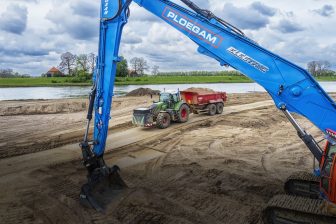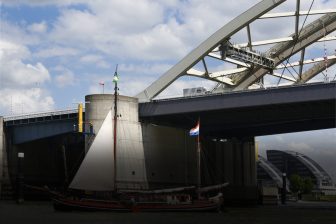IRF Seminar Combining PPPs with EU Funds
4 – 5 February 2008 Bucharest, Romania
2 days IRF Seminar, LIMITED number of participants
Vernier Geneva, Switzerlands – It has long been recognised that realisation of the benefits of EU membership entails substantial commitment of resources to upgrading the infrastructure of new and aspiring member countries. Internationally, PPPs have demonstrated that sharing risks between private firms and the State can provide strong incentives for services to be delivered more efficiently to users.
Despite repeated encouragement by the European Commission for greater use of private funding as a complement to EU grants, lack of information and dearth of successful precedents tends to discourage the use of PPPs in sectors – like transport – where EU funds are a dominant source of external funding.
Seminar objectives
- Provide in depth knowledge of road infrastructure financing through private and EU Funds;
- Examine and suggest ways to ensure a proper legal and institutional environment;
- Build capacity to implement hybrid PPP type contracts;
- Offer a step-by-step analysis of project management.
Who should attend
- Government and municipal agencies;
- Construction companies;
- Infrastructure operators;
- Consulting engineers and management consultants;
- Banks and insurances representatives;
- Educational and training institutions.
PRELIMINARY PROGRAMME
Day 1 – MONDAY, 4TH FEBRUARY
- I. Scope for expanding and improving road infrastructures using EU funds:
- How can PPPs and private finance improve road sector performance?;
- Transport under the new 2007-2013 EU Regulation: the legal framework;
- The financial contribution of the ERDF and CF.
- II. Setting up the right legal, policy and institutional framework for PPPs:
- National Concession Laws;
- The EU procurement directives introducing competitive bidding procedures.
- III. Developing PPP projects:
- Setting up effective project preparation & implementation arrangements;
- Why do you need financial advisers?;
- The lender’s perspective on PPPs blended with EU finance;
- Romania National Strategic Reference Framework and Operational Programmes;
- The JASPERS Initiative.
Day 2 – TUESDAY, 5TH FEBRUARY
- III. Capacity building for hybrid PPP type contracts:
- Setting up a national PPP Task force;
- Defining targets and negotiation strategies;
- Good governance in PPPs: the UNECE Guidelines;
- Decision tree for assessment of sustainability of hybrid PPPs.
- IV. Project management:
- How do rating agencies evaluate PPP/EU debt?;
- Setting up balanced contract provisions, fair risk allocation and distribution of rewards;
- Communication and relationship management;
- What to do when projects go wrong?
- V. Lessons learned from successes and failures:
- Round Table Discussion;
- Clarity of bidding documents;
- Allocation of risk;
- In-house staff capacity;
- Value-for-money comparisons.
U las zojuist één van de gratis premium artikelen
Onbeperkt lezen? Profiteer nu van de introductieaanbieding voor € 10,- per maand.
Bent u al abonnee?



